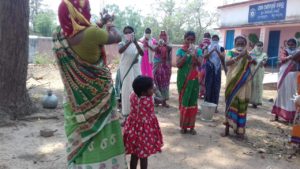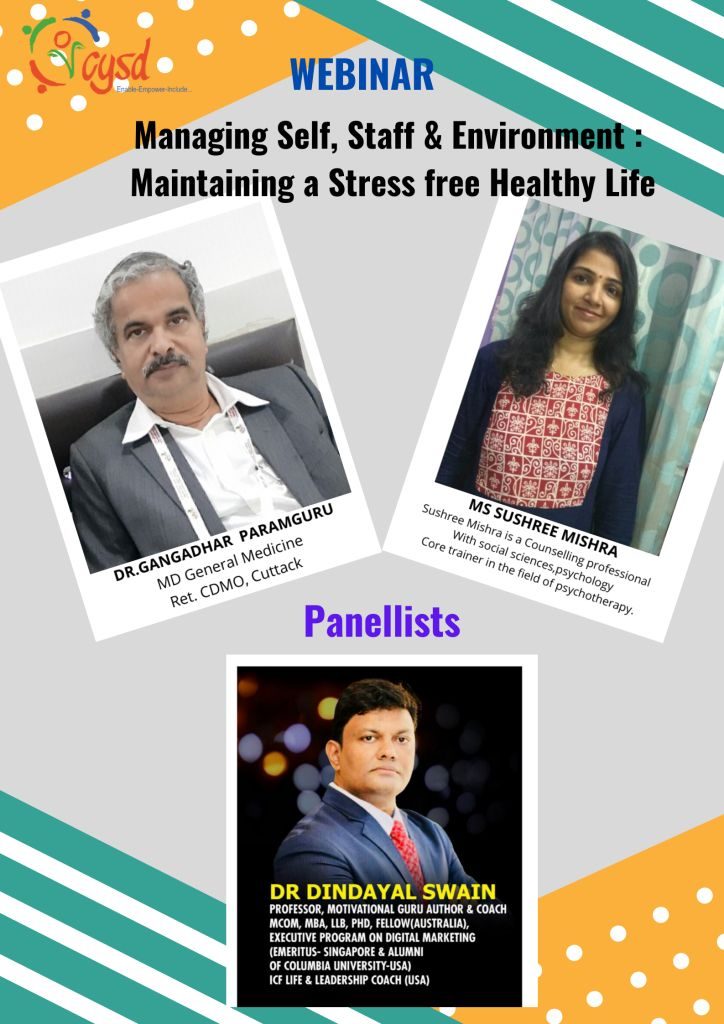COVID-19 Triggers Psycho-social Issues among Migrant Returnees
Migrants are less familiar in their new environment in which they temporarily live. They are prone to various social, psychological and emotional trauma in such situations, emanating from fear of neglect by the local community and concerns about wellbeing and safety of their families waiting in their native places.
During the outbreak of COVID-19, the restrictions imposed on routine activities as part of social distancing norms to prevent the spread of the disease, scores of migrant workers tend to move back to their native places. During the prevailing pandemic, many migrant workers used all possible means to reach their destinations. Many of them are however stuck at borders, including district, state and at national border areas. Most of them are dependent on daily wages for their living, and in times of such distress need sympathy and understanding of the society. Immediate concerns faced by such migrant workers relate to food, shelter, health care, fear of getting infected or spreading the infection, loss of wages, concerns about the family and anxiety. Sometimes, they also face harassment and negative reactions of the local community. All this calls for strong social protection.
Understanding the issues of the migrant returnees, the Government have set up temporary shelters i.e. quarantine centres / temporary medical centres in all Panchayats across for 21 days safe stay.
While trying to reach to their native places, the migrant returnees are being filled with anxieties and fears stemming from various concerns, and are in need of psycho-social counselling support. Therefore, they need to be treated with dignity, respect, empathy and compassion; their concerns and problems should be listened and understood patiently; the specific or varied needs of each person need to be recognised; they must be informed regarding this unusual situation and reassured that the situation is transient and not going to last long and normal life will be going to resume soon. Further, they require to be informed about possible sources of help and the support being extended by Central Government, State Government and Civil Society Organisations including health care systems.
Emphasis may be given on the importance of staying in their present location and how mass movement could greatly and adversely affect all efforts to contain the virus. They should be made realise about their importance in the community and their contributions for the society may be appreciated. This is the time to reassure them that even if their employer fails to help them, local administration and charitable institutions would extend all possible help. Out of desperation, many may react in a manner which may appear insulting them, so our obligations is to understand their issues and handle them patiently. If somebody is afraid of getting affected, we have to convince him/her that the condition is curable and can recover very soon. Most importantly, we require to remind the returnees that it is safer for their families if they themselves stay away for certain period; and instead of reflecting any mercy, we have to seek their support in the spirit of winning over the situation together.

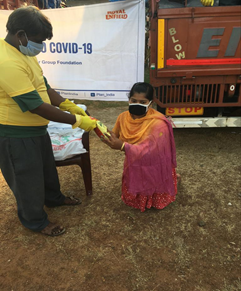 Tulasi, lives in Behera Sahi slum of Patharbandha under Bhubaneswar Municipal Corporation area with her parents and a brother of 19 years. Her father used to maintain the livelihood of a four-member family through goat rearing. While her mother does the household chores, Tulasi helps her father in feeding the goats, finding pasture land and collecting leaf throughout the day, rearing of goat being the only source of the family’s income.
Tulasi, lives in Behera Sahi slum of Patharbandha under Bhubaneswar Municipal Corporation area with her parents and a brother of 19 years. Her father used to maintain the livelihood of a four-member family through goat rearing. While her mother does the household chores, Tulasi helps her father in feeding the goats, finding pasture land and collecting leaf throughout the day, rearing of goat being the only source of the family’s income.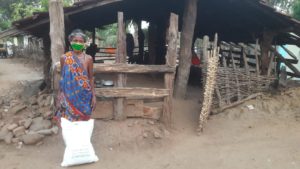 Following the lockdown, the Sunamoni family was forced to sever distress as labour being the only income source was debarred. She bravely managed feeding her 5-member family with the Government support which was insufficient for them. On other the side, her family members’ name were deleted from the community kitchen list, though they deserved it. The matter was inquired by the volunteer of CYSD, Mr. Kamarlal Patla where he found that the father of existing Sarpanch, who acts as the proxy Sarpanch of Chaulmendi GP, had deliberately erased the names of some deserving persons of the Panchayat and cunningly included the names of some favoured persons those supported his son during last election campaign. The matter was informed to the concerned Panchayat Executive Officer (PEO) and demand was made for inclusion of the real needy persons in the community kitchen beneficiaries list. But the PEO was disagreed to change the beneficiaries list as it was already uploaded in the government website. Here, the fact was that not only Sunamoni family members’ name but also many deserving persons’ name from different villages under Chaulmendi Panchayat were missed in the community kitchen beneficiaries list.
Following the lockdown, the Sunamoni family was forced to sever distress as labour being the only income source was debarred. She bravely managed feeding her 5-member family with the Government support which was insufficient for them. On other the side, her family members’ name were deleted from the community kitchen list, though they deserved it. The matter was inquired by the volunteer of CYSD, Mr. Kamarlal Patla where he found that the father of existing Sarpanch, who acts as the proxy Sarpanch of Chaulmendi GP, had deliberately erased the names of some deserving persons of the Panchayat and cunningly included the names of some favoured persons those supported his son during last election campaign. The matter was informed to the concerned Panchayat Executive Officer (PEO) and demand was made for inclusion of the real needy persons in the community kitchen beneficiaries list. But the PEO was disagreed to change the beneficiaries list as it was already uploaded in the government website. Here, the fact was that not only Sunamoni family members’ name but also many deserving persons’ name from different villages under Chaulmendi Panchayat were missed in the community kitchen beneficiaries list.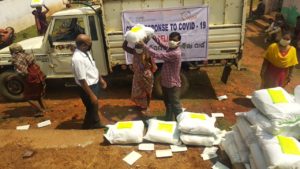
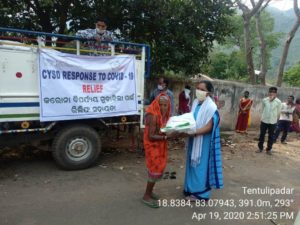 Ward Member of Tentulipadar village in Narayanpatna Block of Koraput shared, “One destitute old women of our village having no access to PDS or Pension assistance, was living with the kind support of the villagers. Now having this survival kit (dry food) support, she will cook her food and not depend on others during this lockdown period”.
Ward Member of Tentulipadar village in Narayanpatna Block of Koraput shared, “One destitute old women of our village having no access to PDS or Pension assistance, was living with the kind support of the villagers. Now having this survival kit (dry food) support, she will cook her food and not depend on others during this lockdown period”.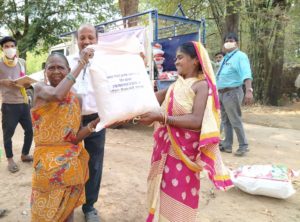 In Koraput district, from among the recipients of the relief materials, one such recipient was Ira Jani from Kumbharguda village of Lima Gram Panchayat in Kundura Block. “There is no one to look after me in my family. I am alone. I came to know that government relief of Rs. 2000/- has been transferred to my Bank Account, but due to lockdown I could not go to the Bank to withdraw money. In this crisis, people from CYSD came to me with the relief kit containing rice, sugar, oil, suji, dal, soya bean, etc. I can never forget their help and support. It is really a saviour for me”, expressed Ira Jani with happiness.
In Koraput district, from among the recipients of the relief materials, one such recipient was Ira Jani from Kumbharguda village of Lima Gram Panchayat in Kundura Block. “There is no one to look after me in my family. I am alone. I came to know that government relief of Rs. 2000/- has been transferred to my Bank Account, but due to lockdown I could not go to the Bank to withdraw money. In this crisis, people from CYSD came to me with the relief kit containing rice, sugar, oil, suji, dal, soya bean, etc. I can never forget their help and support. It is really a saviour for me”, expressed Ira Jani with happiness. 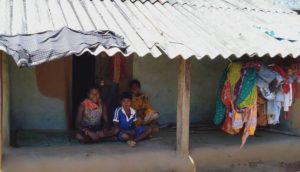 Another recipients of the survival kit, Bhima Khila of Kollar village of Boipariguda Block says, “I belong to Komara caste. As I am having no land to cultivate, I used to migrate to Srikakulam in search of work. Though I am not interested to travel such a distant place, but I have left with no option owing to lack of regular work in my locality. I returned from Srikakulam just a month before travelling by a truck. As soon as I reach in my village, I did my health check-up at Boipariguda Hospital. Thank the God, I was safe. But, due to lockdown I had no money in pocket, even I didn’t get any Government support, accessing daily needs was next to impossible. I struggled hard to feed my four-member family a full meal. At that period of hardship, CYSD team gave me flattened rice, suji, soya bean, Dal, oil and many more commodities. I feel happy with the support as my family members will not sleep hungry. A plentiful thanks to CYSD for supplementing food at the time of my suffering.”
Another recipients of the survival kit, Bhima Khila of Kollar village of Boipariguda Block says, “I belong to Komara caste. As I am having no land to cultivate, I used to migrate to Srikakulam in search of work. Though I am not interested to travel such a distant place, but I have left with no option owing to lack of regular work in my locality. I returned from Srikakulam just a month before travelling by a truck. As soon as I reach in my village, I did my health check-up at Boipariguda Hospital. Thank the God, I was safe. But, due to lockdown I had no money in pocket, even I didn’t get any Government support, accessing daily needs was next to impossible. I struggled hard to feed my four-member family a full meal. At that period of hardship, CYSD team gave me flattened rice, suji, soya bean, Dal, oil and many more commodities. I feel happy with the support as my family members will not sleep hungry. A plentiful thanks to CYSD for supplementing food at the time of my suffering.” 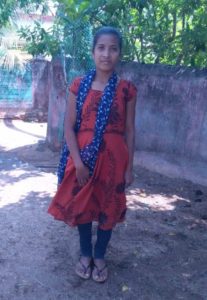
 “We hardly want to restrain our strength, diligence and willpower to help others remaining inside the four walls of the house”, shared 16 years old Barsharani Palei, Mentor of Vir Bahadur Sashtri Chid Club, Nishaposi, Thakurmunda, Mayurbhanj.
“We hardly want to restrain our strength, diligence and willpower to help others remaining inside the four walls of the house”, shared 16 years old Barsharani Palei, Mentor of Vir Bahadur Sashtri Chid Club, Nishaposi, Thakurmunda, Mayurbhanj.  “We have developed small videos on how to take precautionary measures and also explained how to maintain social distancing, avoid public gathering, stay at home, keep safe distance from other people, catch up with friends and relatives virtually instead of in person; using mobile phone”, said 15 years old Sonali Suchismita, the mentor of Rugudibeda Child Club, Thakurmunda, Mayurbhanj.
“We have developed small videos on how to take precautionary measures and also explained how to maintain social distancing, avoid public gathering, stay at home, keep safe distance from other people, catch up with friends and relatives virtually instead of in person; using mobile phone”, said 15 years old Sonali Suchismita, the mentor of Rugudibeda Child Club, Thakurmunda, Mayurbhanj.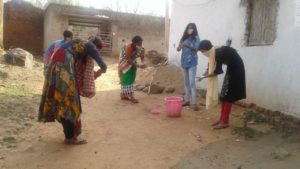 “Through videos, we have been sensitizing people to wash their hands with soap at least for 20 seconds at regular intervals, and to wear mask while stepping out. We have forwarded all those videos and IEC materials digitally to our peers, family members and relatives with a request to follow the advisories, and even we have demonstrated social distancing and hand wash practices in our communities to make people aware”.
“Through videos, we have been sensitizing people to wash their hands with soap at least for 20 seconds at regular intervals, and to wear mask while stepping out. We have forwarded all those videos and IEC materials digitally to our peers, family members and relatives with a request to follow the advisories, and even we have demonstrated social distancing and hand wash practices in our communities to make people aware”.